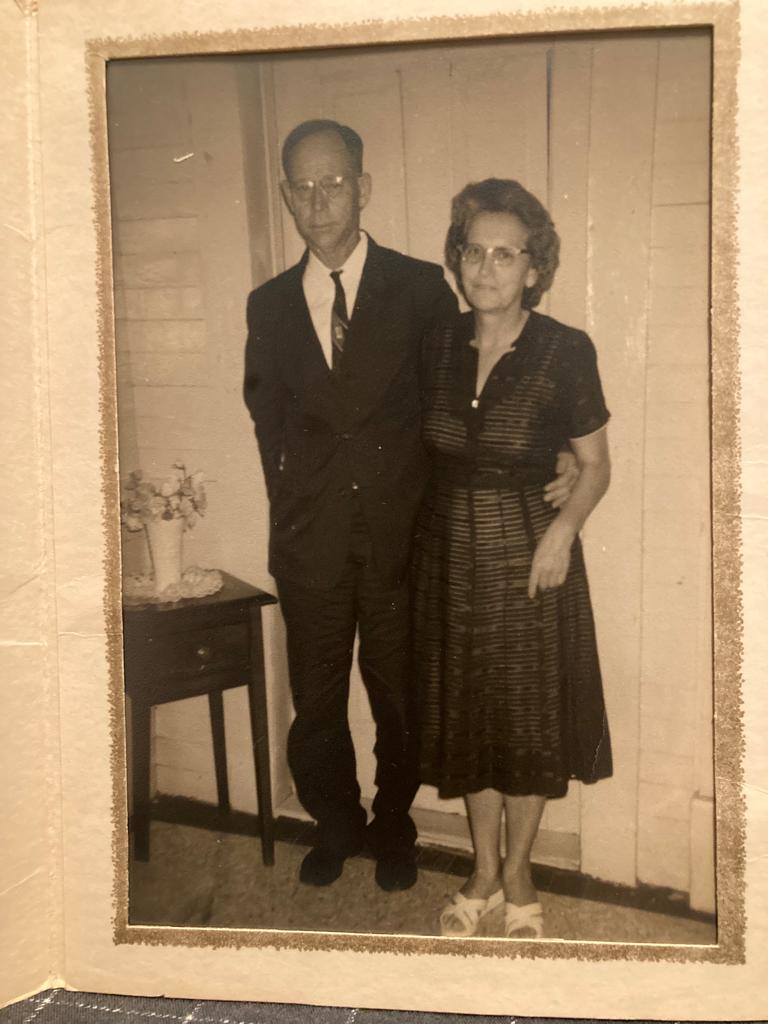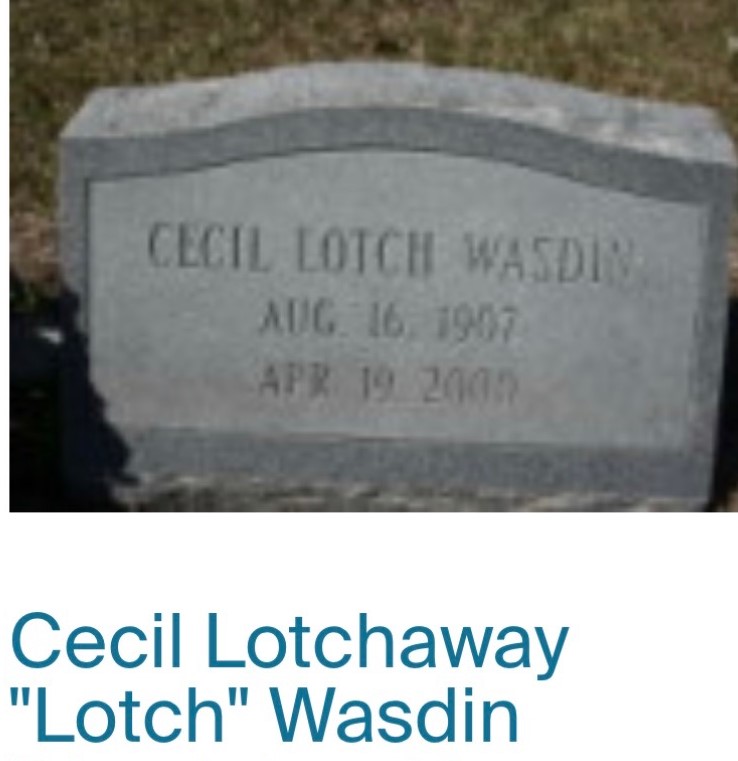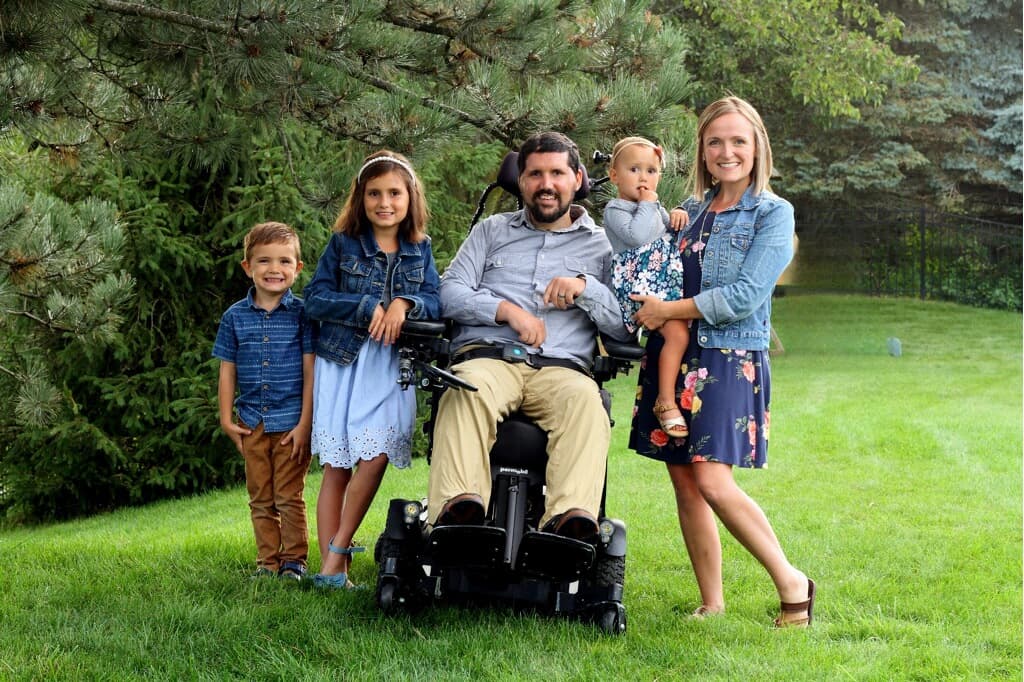A physical therapist and I were talking goals a few years ago during one of my sessions. I had just finished a butt-kicking round of assisted walking, and the two of us were tuckered out but excited. I had made some big physical gains in the several months he and I had been working together.
“Lane, if you keep this up I can have you using a walker within the year.” My ears perked up at the suggestion, but I also had reality to face. The presence of a brain that makes my body do the opposite of what I tell it, tethered to the certain hope of a new and perfect body awaiting me in Glory.
We continued talking as we worked together on more exercises to progress my physical recovery. He told me he couldn’t wait to walk beside me instead of helping me fight to take steps. I told him I was excited for that day too, whether it happens in this body or in my resurrected one when I see Jesus. There was an awkward silence after that, and I’ve experienced that tension in beliefs ever since.
I still believe that Day will come when Christ makes my body new and fit for eternity, but in the meantime I keep fighting hard in rehab to make as much physical progress as I can on this side of Heaven. Is that contradictory thinking?
A man named Cecil Lotchaway Wasdin (“Lotch”) would say no. He lived a full life that quietly displayed both hard work and simple trust. With him, the two went hand in hand.
Quiet contentment, trust and tobacco
I had the great privilege of knowing my great grandfather when I was a child. I didn’t see him very often — he lived in small-town Georgia and we in Charlotte, NC — but even as a young boy, I sensed the great respect with which he was regarded.
Lotch Wasdin was far from an imposing figure — not particularly tall, muscular or commanding in demeanor. He was as calm and quiet as a tobacco field in the Georgia sun, but as steady as the single caution light in his tiny hometown of Screven.
One of my chief delights was trying to beat him at checkers (an impossible feat, but I considered it my rite of passage to the world of men). He had a certain way of slowly raising a tin cup to his mouth, sneaking his lips inside and silently depositing a hunk of slimy tobacco. He was a man set in his ways — and while some of those ways left him with stained teeth and an ever-present spit cup, the ways that outlived him became the legacy he passed all the way down to his great grandkids.
I’ll never forget sitting in an uncomfortable wooden pew listening to his son — my great uncle — deliver his funeral sermon. Not much of that sermon found its way into my fidgety eight-year-old head, but I’ve never forgotten the single adjective my great uncle used to describe his father: content.
My dad often shares an anecdote that describes Lotch Wasdin’s outlook on life well. He was a farmer, so his fields of cotton and tobacco were his livelihood. But when all the other farmers in town would get together and gripe about how dry the weather was, Lotch would just lean back, cross his legs, (probably spit some tobacco in his tin cup) and say, “It’ll rain when the good Lord wants it to rain.”

He was content. But he wasn’t lazy. He worked hard in the Savannah shipyards during the Second World War to help supply ships for the war effort. Growing up in the rural South in the early twentieth century, it’s hard to imagine many days he didn’t work hard.
That’s what you call a healthy tension: remaining content with your circumstances as they are (as Paul modeled in Philippians 4:11-13), while not being afraid to take advantage of better circumstances should they arise (as Paul taught in 1 Corinthians 7:20-22).
This healthy tension is one of the things that separates joyful contentment from resigned fatalism.
True contentment is active
It’s easy to rob contentment of its true meaning, and instead use it as a cover for complacence.
“I’m content with inactivity, why bother trying to find work?”
“I’m content not knowing much about God, isn’t that what pastors are for?”
“I’m content to let others take care of my responsibility, why should I get off the couch?”
“I’m content being physically disabled, what’s the point of therapy?”
And on it goes. We humans have a tendency to glamorize and justify our faults. And we live in a culture that encourages us to celebrate them. Yes, God uses the weak to shame the strong and the foolish to shame the wise (boy am I ever glad about that!), but He didn’t tell us to stay there. He uses us in our weakness and worldly folly to display His greatness, not to give us an excuse for laziness.
I’m writing this more to myself than anyone else — because passivity is my default mode — but I have a feeling that this will resonate with a lot of my fellow men. Ever since Adam failed to protect Eve from the fatal lie of the Enemy, we men have been particularly prone to make excuses for our passivity. But no, men, don’t point your finger at Adam like he pointed his at Eve. That passive discontentment is what started us all down this spiraling road.
When I say “contentment is active”, I’m talking about the same basic principle Paul was communicating in 1 Corinthians 7:20-22. Verse 21 in particular explains the rightness and goodness of being content with your life station, while at the same time taking advantage of better circumstances if they come. The point is that Jesus is Lord, so you can rejoice in Him regardless of your situation. But He gives you the freedom to better your circumstances if you can. Either way, the reward is Jesus, not better circumstances.
Contentment is active, and contentment is joy. But only if your end goal is the Source of all joy. Otherwise you’re chasing the wind.
Lotch Wasdin embodied a calm joy, an unflappable active contentment. After thousands of conscious daily decisions, it became part of his character. Sitting outside in his folding chair, when it got too hot and everyone else complained of the sun and the skeeters, he’d quietly fold his chair up and sit in the shade. When the rain finally came and the farmers shifted their ire from the dryness to the soggy soil, he’d chuckle and work on something else until the sun did its work.
My great grandpa Wasdin wasn’t complacent. He was content with what the Lord gave him, and who the Lord is. But when the chance came to better his crops and his life, he took it.
I’m learning to be the same way with my life. I want to be content with where the Lord has placed me, and rejoice in who He is. But as long as I have the strength to work like a madman in therapy, I’m going to take it.
Now somebody find me a spit cup.


3 Comments
Wow, I loved this. How inspiring you are. Seeing progress in you makes me forget to complain about my aches and pains. You are blessed with a wonderful family, which made you turn out to be the person you are. I am blessed to know you and your family. Hang in there and dont spit that tobacco juice into the wind.
I enjoyed reading this, it brought back memories of grandpa.
God bless you and your family.
I love this! So many gems of wisdom here. “Contentment with godliness is great gain.” It was nice to talk with you at Perspectives. Thank you for continuing to be a blessing!